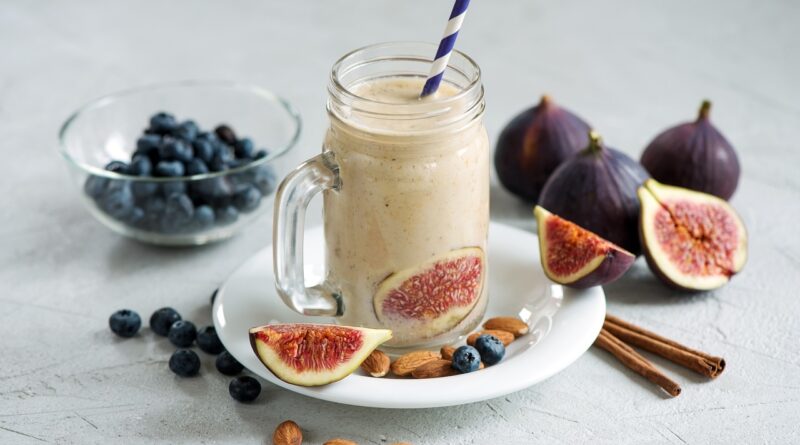Why Protein Is Trending In India?
Protein is a new fad in India. Companies are betting big on protein products, from protein milk, protein buttermilk, and protein pasta to even protein water; things are going crazy in a country where a majority of people do not have enough carbs to feed on. So, where is the business zeroed in? Is there a nutritional shift in rich people’s diets, or are people influenced by social media’s overhyped obsession with protein? India has the largest vegetarian population in the world, where more than 30% of people are identified with strict vegetarianism. The major source of the finest protein comes from animal flesh, and people who do not eat flesh do not even bother to include protein-rich vegetarian foods in their diets. As a result, people are gaining fat easily. Women look chubby, and men, especially middle-aged, have lean feet and hands but protruding bellies and unexpected fat accumulation.
Importance of Protein
We all know protein is a major macronutrient, which means it is essential for the body. It helps with muscle growth, tissue repair, hormonal regulation, and fat regulation. This essential macronutrient is more significant as we age because it helps to preserve muscle mass and strength. Protein also takes lots of time to digest. As a result, it makes us feel fuller so that we do not feel hunger pangs and eat unnecessary carbs.
But do we really need all these protein-packed products in our diets? While folks in the West are debating whether they’re going overboard with protein, it’s a whole different picture in India. According to data from the UN Food and Agriculture Organization, India’s average daily protein intake in 2021 was just 70.5 grams per person. That’s not only behind China’s 124.6 grams and the US’s 124.3 grams but also lower than Indonesia’s 79.8 grams and even Pakistan’s 70.7 grams. Studies back this up, too—a survey by the Indian Market Research Bureau found that 73% of urban, well-off Indians are protein deficient. What’s more, most of them haven’t got a clue about how much protein they actually need or where to get it from.
Companies Fill (Trying) the Gap
It is the “protein gap” that companies are looking to fill up with their variety of products. Over the past five years, easy-to-consume protein food products have witnessed steady growth, and the industry is estimated to be around $4.5 billion by 2030. India has been witnessing the immense expansion of small companies and start-ups across plant-based fermentation and cultivation proteins. The biggest change the country has been witnessing is the growing adoption among people who aren’t necessarily leading active lifestyles, as awareness grows about age-related muscle loss and the importance of protein in maintaining muscle mass amongst old and middle-aged people.
Not only are start-ups aggressively working in the protein-based product industry, but big names are also involved in this segment and marketing and expanding their businesses quite aggressively.
Parag Milk Foods Limited: Established in 1992, Parag Milk Foods is one of India’s largest private dairy FMCG companies. It offers a range of 100% cow’s milk products. Their brand, ‘Avatar,’ is noted as India’s first 100% vegetarian whey protein manufactured domestically.
Patanjali Foods: Formerly known as Ruchi Soya Industries, Patanjali Foods is a major player in India’s FMCG sector. In June 2021, the company acquired Patanjali Ayurveda’s biscuits and noodles business for ₹60 crore, and in May 2022, it took over Patanjali Ayurveda’s food business for around ₹690 crore. The company was rebranded as Patanjali Foods in June 2022.
Zydus Wellness: A subsidiary of Zydus Lifesciences, Zydus Wellness produces nutrition and skincare products. In January 2019, the company acquired Heinz India’s consumer wellness business for ₹4,595 crore, which included brands like Complan, a popular health drink in India.
Mukka Proteins Limited: Headquartered in Mangaluru, Karnataka, Mukka Proteins is a leading producer and exporter of animal protein products, including fish meal, fish oil, and fish soluble paste. For the fiscal year ending March 2024, the company reported a revenue of ₹1,380 crore and a net profit of ₹87 crore.
Danone: The French multinational is planning a significant expansion in India to compete with Unilever and Nestlé in the fast-growing market. In 2024, Danone announced a €20 million investment to expand operations in Punjab and suggested future acquisitions to boost their presence.
These developments highlight the dynamic nature of India’s protein-based product industry, with both domestic and international companies actively expanding their presence.
How Much Protein Do You Need?
The World Health Organization (WHO) and the Indian Council of Medical Research (ICMR) recommend a daily protein intake of 0.8 grams per kilogram of body weight for adults. Active individuals, particularly those engaged in weight training, require higher protein intake. It is essential to verify the actual protein content per serving on product labels. Products that claim to be “high protein” but provide only 2 grams of protein per serving can be misleading. Some brands offer whey protein at prices lower than the cost of quality sourcing, often using low-concentration whey (approximately 40%) or amino spiking to inflate protein content artificially.
Excessively high-protein diets can lead to health issues such as kidney stones, while excessive consumption of red meat may increase the risk of heart disease and colon cancer. In contrast, plant-based proteins may not carry the same risks.
Get updates and read additional stories on the Health Orbit Fan Page.
For Guest posts, Sponsored posts and other details, please click ‘Contact Us’ page.




